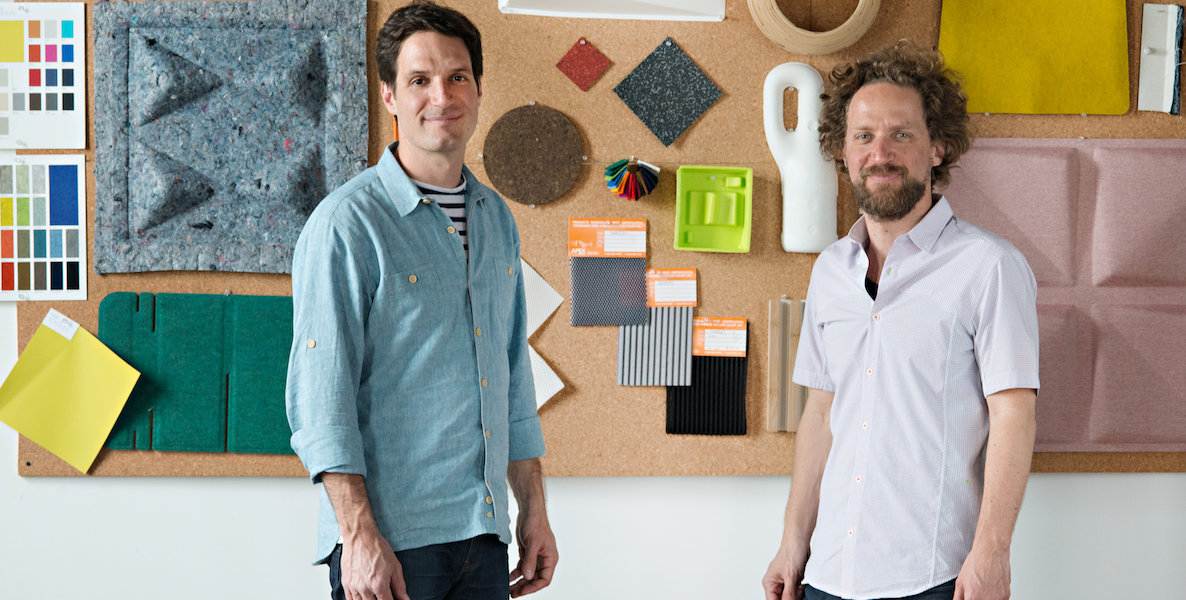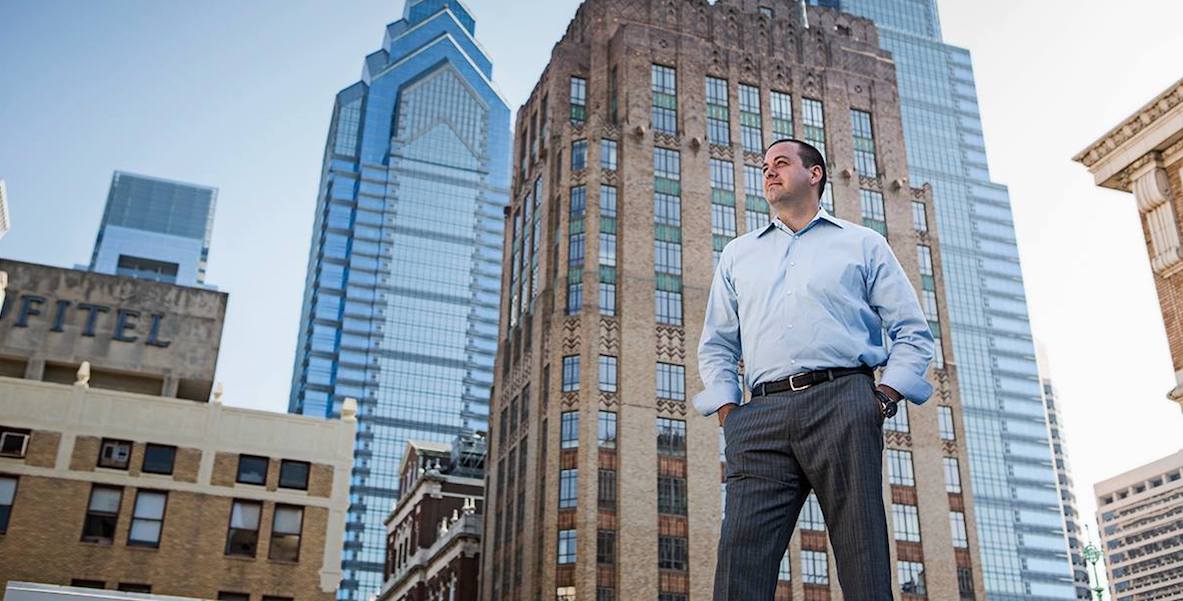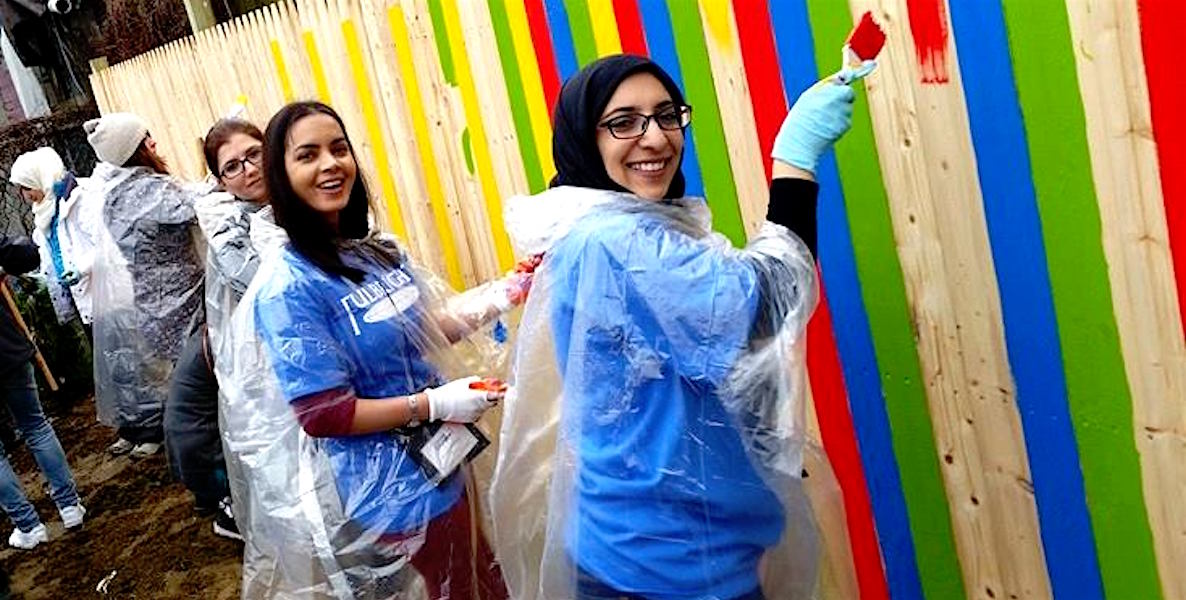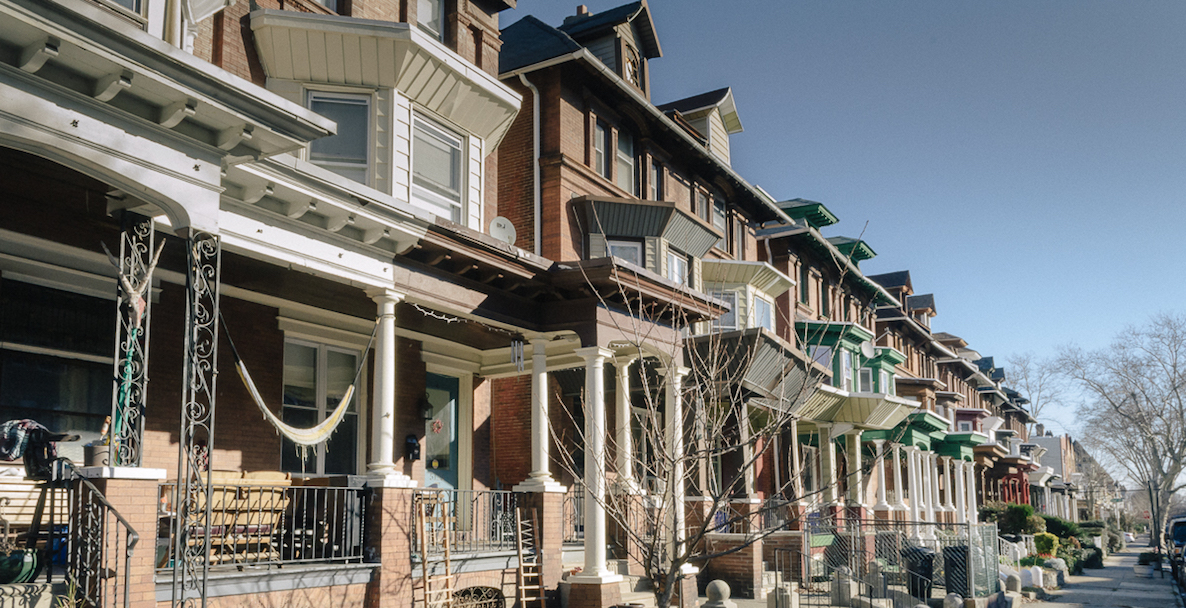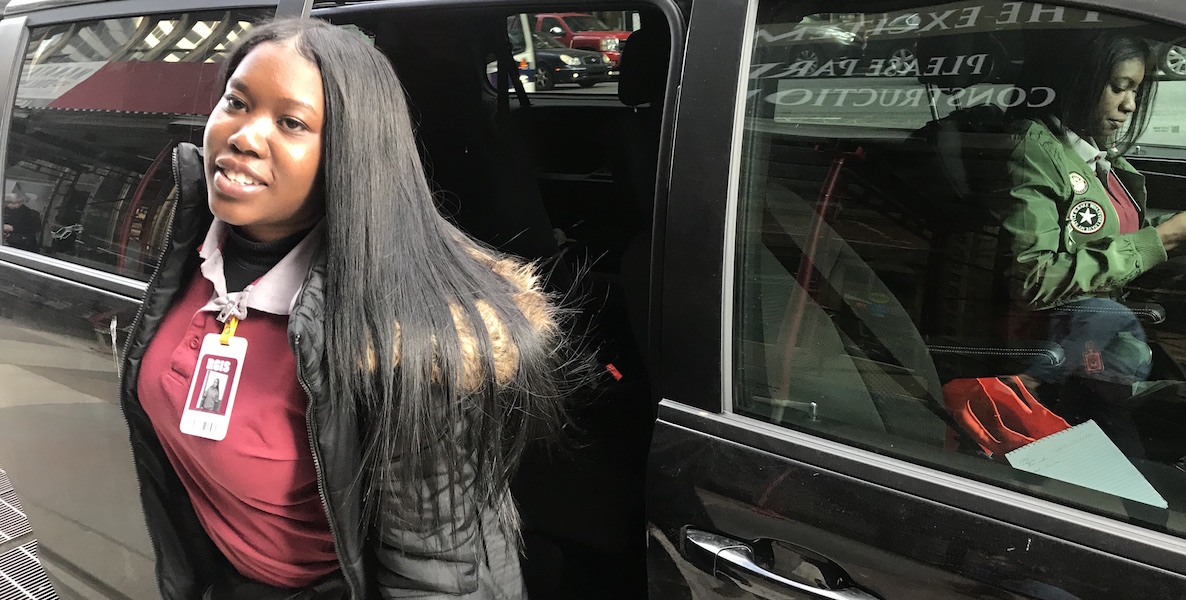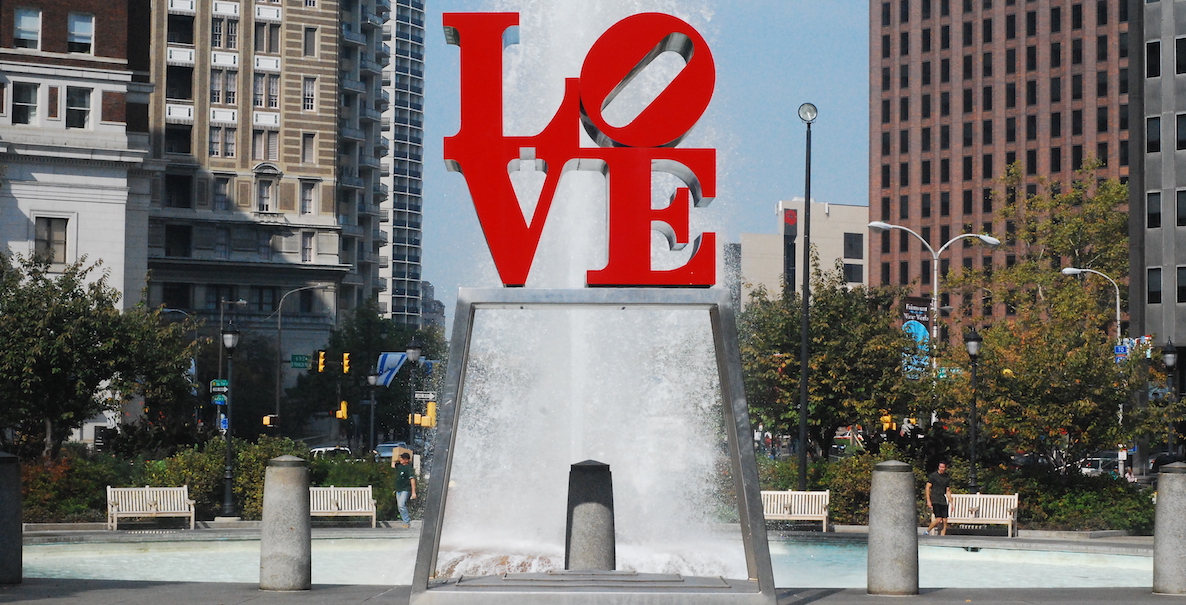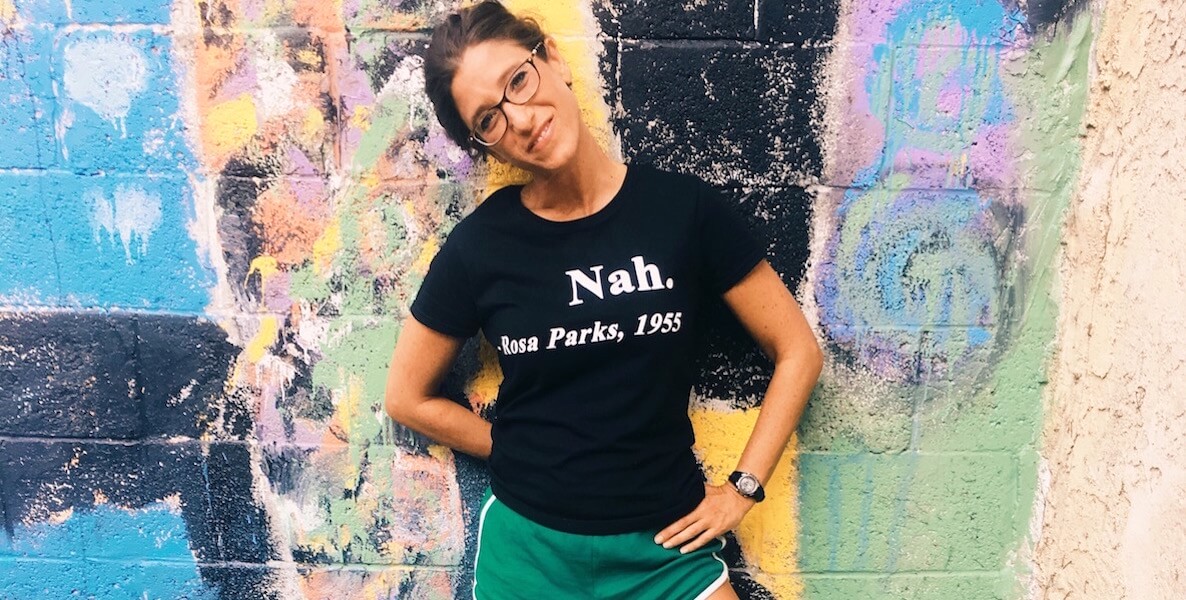In her seven years of working with people who are homeless, Stephanie Sena has come to learn a lot about the barriers to finding a warm bed at night.
There’s the man she met recently, for example, who had an emergency leg amputation last year after discovering a blood clot. Soon after, he––having been denied physical therapy for lack of insurance––was forced to pass on the last vacant bed in Philadelphia he could find: the top tier of a bunk, which was no longer accessible to him.
There are the men and women—about 10 to 15 percent of homeless—who refuse shelter because they will not part with their pets.
And there are those who spend night after night, with no additional help in finding a job or a permanent home, until they give up and stop going to shelters all together.
“Shelters are sort of like band-aids,” Sena says. “They cover up the issue. The end-goal, however, should be getting people out of shelters and into better lives.”
Sena, an adjunct history professor at Villanova University, oversees the Student-Run Emergency Housing Unit of Philadelphia (SREHUP), a nonprofit she helped found as a way to engage her millennial students in making a difference to their world. Since 2011, SREHUP has served approximately 750 people in a winter shelter run out of the basement of a church in Center City.
Now, SREHUP is raising money to open a year-round, unconventional homeless shelter this fall to address exactly the barriers Sena has encountered on the streets. She says it will be the first pet-friendly, ADA-compliant and truly low-barrier homeless shelter on the East Coast, offering health services and a path to permanent housing.
SREHUP is partnering with the Morris Animal Refuge to provide all animal care for her clients, and the shelter itself will offer GED training, healthcare, resume-building workshops, a rooftop garden through a partnership with R & B Farms, and many other resources.
“At the end of the day, we are a community,” Sena says. “It’s a community where we roll up our sleeves and say, ‘We are going to take care of one another, no matter what it takes.’”
Most importantly, it will offer a way out: For clients who are ready to look for an apartment, SREHUP will provide $1,000 for a security deposit, an amount Sena has found to be a nearly-impossible expense for people who are homeless. Then the program will offer $400 a month for about a year to cover utilities and rent, all while working with the person to eventually be able to handle the cost of living on their own.
So far, a GoFundMe campaign for SREHUP has raised $22,000 of the estimated $75,000 Sena says they need to open the shelter, which will house about 30 to 40 residents at a time. The group is now scouting locations in West and South Philly, where Councilmembers Mark Squilla and Jannie Blackwell have expressed support for a SREHUP location. Once it opens, it will continue fundraising through grant writing, as well as through grassroots fundraising efforts and donations.
“It’s all hands on deck,” Sena says. “We need everybody, no matter what they have––if it’s time, if it’s money, if it’s a talent, if it’s a smile––we need everybody to be invested in this, because it’s about saving our neighbors.”
SREHUP is all volunteer-run, staffed by 300 Villanova and other college students who learn about SREHUP through media coverage and through the classes that Sena teaches. It was founded by a group of Villanova students who had taken a class Sena taught on social justice in 2011, at the same time Philadelphia’s largest emergency shelter announced it would be closing. Inspired by her students’ passion for helping better their world, Sena took a group to Cambridge, Massachusetts to see a similar shelter run by students from Harvard.
One thing became clear to her as they sat in a coffee shop afterward, making plans to launch a SREHUP in Philadelphia: Her students, these millennials said to be lazy and entitled, were ready to become the driving force behind overcoming homelessness.
“Our youth are a resource for social justice,” Sena said during a TEDx Talk in 2015. “And, indeed, social justice is what is needed to tackle these societal ills. We need to see this generation as the social justice generation.” She added that it was this “reimagining” of the millennial generation that inspired her to start SREHUP.
But the work has not been without challenges.
Sena, who lives in Bella Vista, is unexpectedly upbeat given the circumstances—both personal and with her clients—she faces. At her neighborhood coffee shop recently, the 38-year-old mother of two joked with her two elementary school-age kids, who sat at the next table, and beamed from ear to ear as she showed off pictures from her to trip Vietnam with her son, Jonah. “I try to find joy in everything I do,” she says.
This was especially surprising given just the events of Sena’s last few weeks. At the last minute, an investor backed out of a deal for a location SREHUP had found due to complaints from neighbors who did not want to live next to a homeless shelter. Now Sena and SREHUP are back to scouting for space.
Then, a week before the SREHUP shelter closed for the season, Sena learned of a mother who was living with her six young children in a train. She took them in, then put the family up in a hotel until she could find another shelter for them. She finally found one in the suburbs, which required a family interview.
“My only goal was to get them back on their feet and not to have them separated,” Sena says. “So many of the conversations with them were me saying, ‘I promise you that you are not going to go into foster care, I promise you that I am going to keep you together.’”
But the day before the interview, Sena received a call from the hotel desk: The mother had gone into labor for a child she apparently didn’t know she was carrying, and was rushed to the hospital in an ambulance. Her uterus ruptured during labor; she lost nearly half her blood, and wound up in a coma. And after Sena’s day-long fight to find the six children a home together, they were eventually separated into different foster homes.
“It’s all hands on deck,” Sena says. “We need everybody, no matter what they have––if it’s time, if it’s money, if it’s a talent, if it’s a smile––we need everybody to be invested in this, because it’s about saving our neighbors.”
Sena was devastated. “So I am trying to figure out how to open a shelter that will eliminate these issues,” Sena says. “All while putting out these fires for families who really need help.”
At the same time, Sena has also been battling her own health issues. A bruise that never healed correctly on her foot caused a neuropathy, which has led to several amputations; eventually, she will need to wear a prosthetic. The neuropathy also caused other serious complications that had her in and out of the hospital for weeks. At one point, she even thought she might die, and was making her final plans to be cremated.
The episode made her think again of the homeless man whose leg had been amputated, and how their lives are so similar: They were born on the same day and in the same year, yet their lives took different trajectories. Sena asks herself how this man would have withstood such challenges without the help that SREHUP gave him––the same sort of kindness that she, herself, came to rely on during her surgeries. Then it dawned on her: “He would have died,” she says. “That’s awful to even think about.”
SREHUP is raising money to open a year-round shelter that will be the first pet-friendly, ADA-compliant and truly low-barrier homeless shelter on the East Coast, offering health services and a path to permanent housing.
“These are the hard and dramatic parts about what I do, though,” Sena says. “The good absolutely outweighs the bad. Otherwise, I couldn’t continue to do this work.”
Sena lives for the moments when students, volunteers and homeless men and women blend seamlessly together around a table at the shelter, playing cards or breaking bread. Or when another man––a graduate of Yale, who became homeless––talks politics and philosophy with her students. She keeps in touch with the people who move on to find jobs, a home and a new life, many of whom return to SREHUP to volunteer later on.
RELATED: In two years, Philly eradicated the shameful trend of veteran homelessness. Here’s how we did it.
And she says that she is proud that she is raising her children “to have deep and meaningful friendships and to find beauty in people who have been ostracized and neglected by the rest of society.”
When asked how she does it, her response is that of humility: She hates what she calls “the white-savior complex”––the idea that she is some sort of hero, when in reality, she admits that she gets more out of this work than it does of her.
“At the end of the day, we are a community,” Sena says. “A community in which we aren’t going to let our neighbors die in the streets. It’s a community where we roll up our sleeves and say, ‘We are going to take care of one another, no matter what it takes.’ That’s the best of us. That’s when we are the best city and our best selves.”
![]()
RELATED



